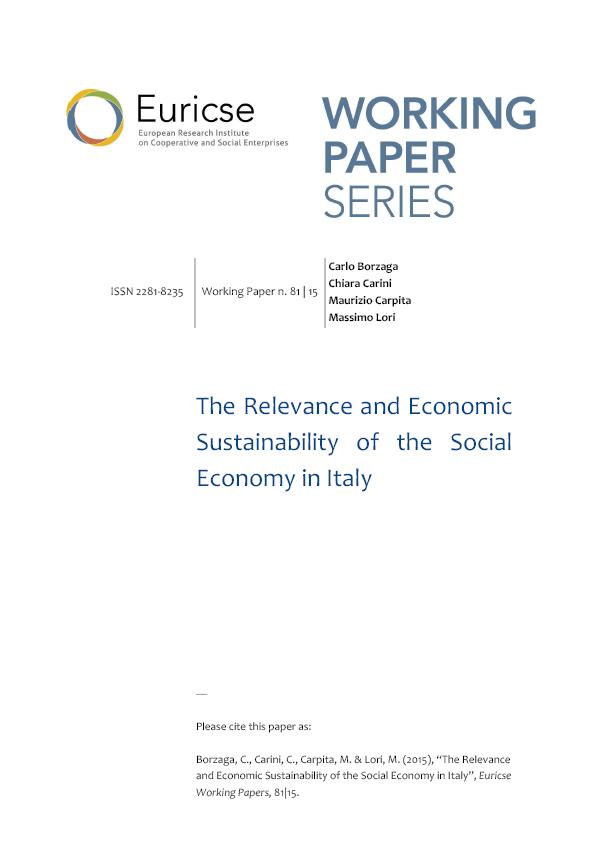WP 81 | 15 The relevance and economic sustainability of the social economy in Italy
In many countries, the economic crisis has contributed to the increase of already-existing economic and social inequalities. These circumstances have contributed to the questioning of knowledge and conventional values, accelerating the need to rethink the roles of the different actors within the production system and to combine new forms of organization and interaction among the public sector, civil society organizations, private enterprises and citizens. In this context, researchers, politicians and society in the broader sense have focused on the role played by organizations, which by their nature mainly pursue social purposes and are characterized by systems of participative governance. The term “social economy” is often used to identify the universe of private organizations that pursue goals other than profit. This concept is increasingly supplanting other concepts that are used for the same purpose.
While this sector has long constituted an important component of the economy in many European countries, the interest in quantifying its presence and importance is more recent, partly because of the lack of comprehensive data on all the different organizational forms it comprises. The Italian Institute of Statistics (Istat) sought to overcome this issue with its 9th Industry and Services Census. Given these premises, by analyzing the data of the Census, this study explores the size of the social economy in Italy in terms of organizations, employment and revenues, while taking into account the market/non-market orientation of the organizations.

